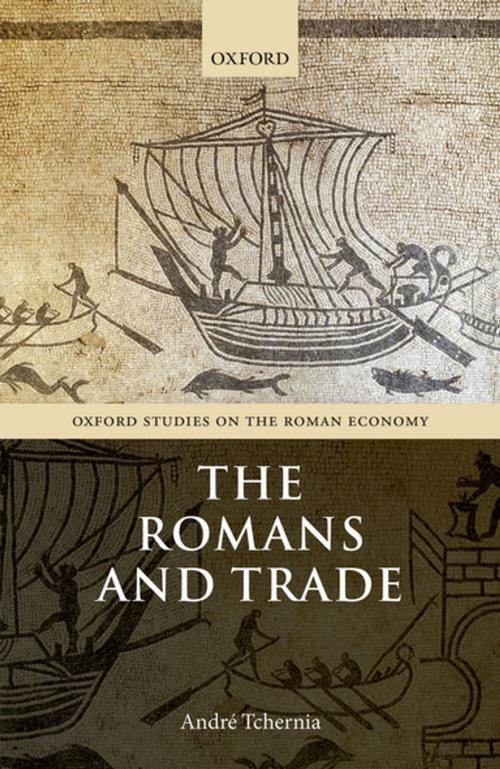| Author: | André Tchernia | ISBN: | 9780191091094 |
| Publisher: | OUP Oxford | Publication: | November 10, 2016 |
| Imprint: | OUP Oxford | Language: | English |
| Author: | André Tchernia |
| ISBN: | 9780191091094 |
| Publisher: | OUP Oxford |
| Publication: | November 10, 2016 |
| Imprint: | OUP Oxford |
| Language: | English |
André Tchernia is one of the leading experts on amphorae as a source of economic history, a pioneer of maritime archaeology, and author of a wealth of articles on Roman trade, notably the wine trade. This book brings together the author's previously published essays, updated and revised, with recent notes and prefaced with an entirely new synthesis of his views on Roman commerce with a particular emphasis on the people involved in it. The book is divided into two main parts. The first is a general study of the structure of Roman trade: Landowners and traders, traders' fortunes, the matter of the market, the role of the state, and dispatching what is required. It tackles the recent debates on Roman trade and Roman economy, providing, original and convincing answers. The second part of the book is a selection of 14 of the author's published papers. They range from discussions of general topics such as the ideas of crisis and competition, the approvisioning of Ancient Rome, trade with the East, to more specialized studies, such as the interpretation of the 33 AD crisis. Overall, the book contains a wealth of insights into the workings of ancient trade and expertly combines discussion of the material evidence-especially of amphorae and wrecks-with the prosopographical approach derived from epigraphic, papyrological and historical data.
André Tchernia is one of the leading experts on amphorae as a source of economic history, a pioneer of maritime archaeology, and author of a wealth of articles on Roman trade, notably the wine trade. This book brings together the author's previously published essays, updated and revised, with recent notes and prefaced with an entirely new synthesis of his views on Roman commerce with a particular emphasis on the people involved in it. The book is divided into two main parts. The first is a general study of the structure of Roman trade: Landowners and traders, traders' fortunes, the matter of the market, the role of the state, and dispatching what is required. It tackles the recent debates on Roman trade and Roman economy, providing, original and convincing answers. The second part of the book is a selection of 14 of the author's published papers. They range from discussions of general topics such as the ideas of crisis and competition, the approvisioning of Ancient Rome, trade with the East, to more specialized studies, such as the interpretation of the 33 AD crisis. Overall, the book contains a wealth of insights into the workings of ancient trade and expertly combines discussion of the material evidence-especially of amphorae and wrecks-with the prosopographical approach derived from epigraphic, papyrological and historical data.















